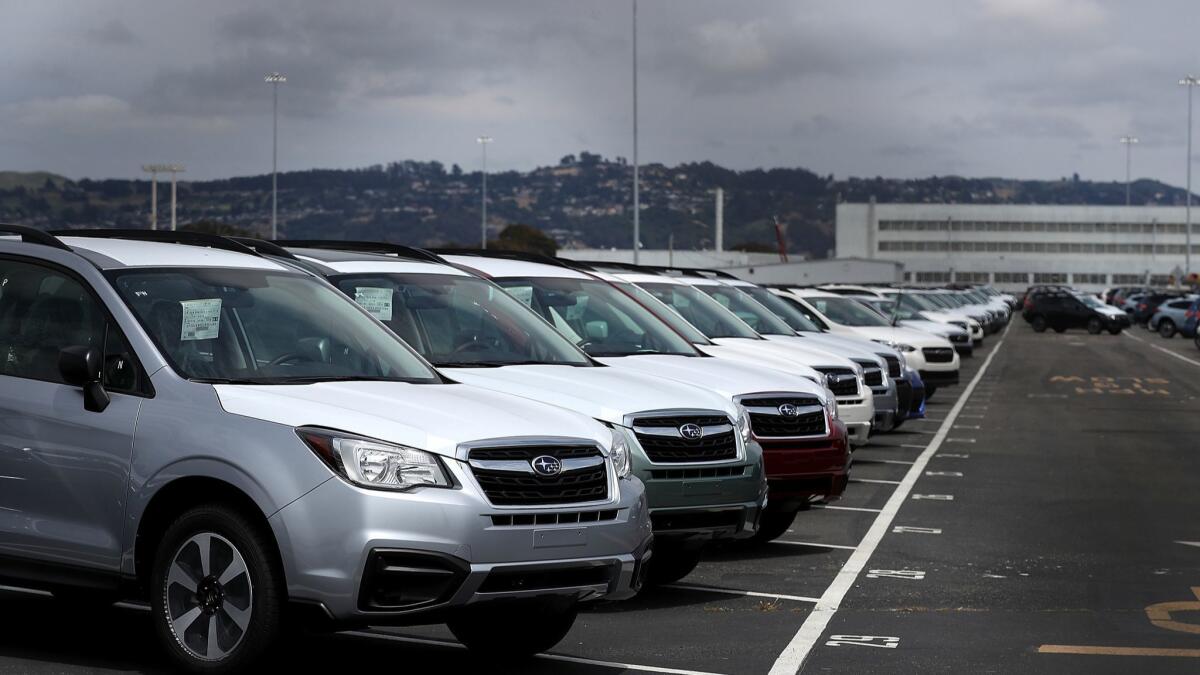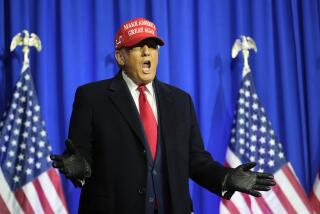Trump delays EU and Japan auto tariffs for 180 days

President Trump on Friday announced a delay in imposing tariffs on imported vehicles and parts from the European Union, Japan and other nations for 180 days to pursue negotiations, avoiding opening another front in his tariff battle with some of U.S.’ key allies.
In February, the Commerce Department submitted its findings to the president after conducting a Trump-requested probe into whether car imports pose a national security threat. Trump had until Saturday to decide how to respond, including whether to impose tariffs or defer any action.
In a proclamation released in Washington, Trump said he agreed with the conclusion by the department that imports of cars and certain auto parts harm national security.
The proclamation, however, softened language contained in an earlier draft seen by Bloomberg, which had sought to reach “agreements that limit or restrict” exports of autos and auto parts from the EU, Japan and other nations — suggesting that the U.S. could seek to impose quotas.
Instead, the White House order on Friday had less pointed wording, directing U.S. Trade Representative Robert Lighthizer to pursue negotiations of agreements “to address the threatened impairment of the national security.”
“Domestic conditions of competition must be improved by reducing imports,” the proclamation stated.
The order indicated that Canada, Mexico and South Korea would not face any tariffs because they had already negotiated deals with the Trump administration. “I have also considered the renegotiated United States-Korea Agreement and the recently signed USMCA, which, when implemented, could help to address the threatened impairment of national security,” Trump’s order said.
Canada and Mexico negotiated side letters to the U.S.-Mexico-Canada Agreement that spare them from new U.S. duties on cars, subject to a cap. The U.S. renegotiated a trade deal with South Korea last year, which included a provision to double the number of cars U.S. automakers can sell in the Asian nation without restrictions from local safety standards.
The EU and Japan have rejected the idea of quotas, even those that allow for some growth, such as the arrangements that Mexico and Canada negotiated with the U.S. in their talks.
The Commerce Department started the investigation last year under Section 232 of a 1960s trade law, the same provision the administration used to slap tariffs on steel and aluminum. The car probe covered imports of vehicles including SUVs, vans and light trucks, as well as auto parts.
The delay may avoid a major escalation of tensions with U.S. allies as the administration faces a deepening trade war with China that is disrupting supply chains and casting a cloud over the global economy.
The move will allow more time for the Trump administration to continue ongoing negotiations for trade accords with the EU and Japan, major car exporters to the U.S. who have staged lobbying campaigns against any tariffs. Trump has used the threat of auto tariffs of as much as 25% to gain leverage in those talks.
Companies and governments from Europe to Asia have warned Trump that tariffs on car imports would hurt the U.S. economy and disrupt the global auto industry.
“Current tariffs have added cost, reduced the industry’s global competitiveness, and created tremendous uncertainty resulting in slowed investment and growth,” John Bozzella, the president of Global Automakers, a trade group that represents automakers and suppliers based outside the U.S., said in a statement Thursday.
The National Automobile Dealers Assn. estimates that the tariffs would add as much as $2,270 to the cost of U.S.-built cars and $6,875 to the cost of imported cars and trucks.






